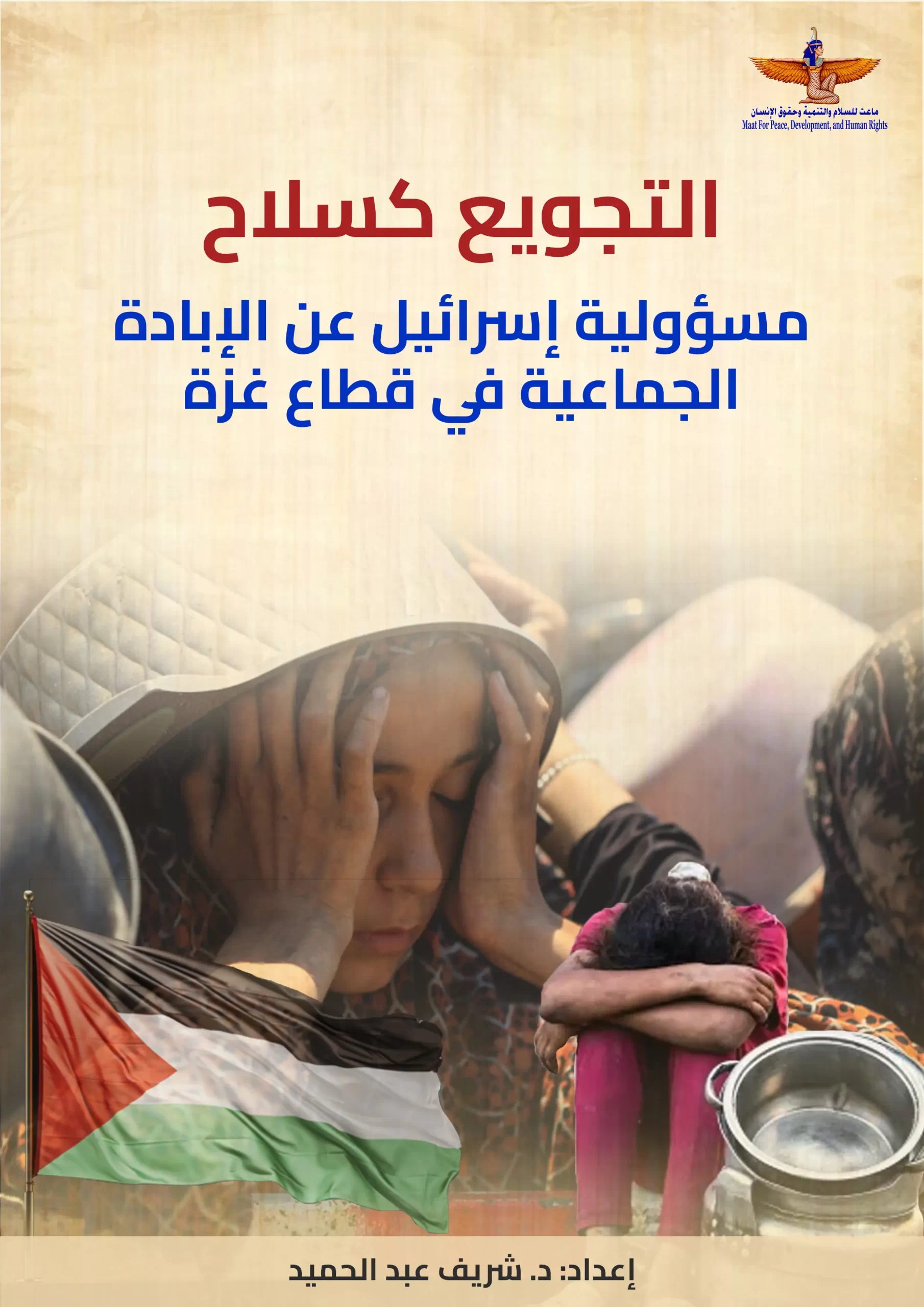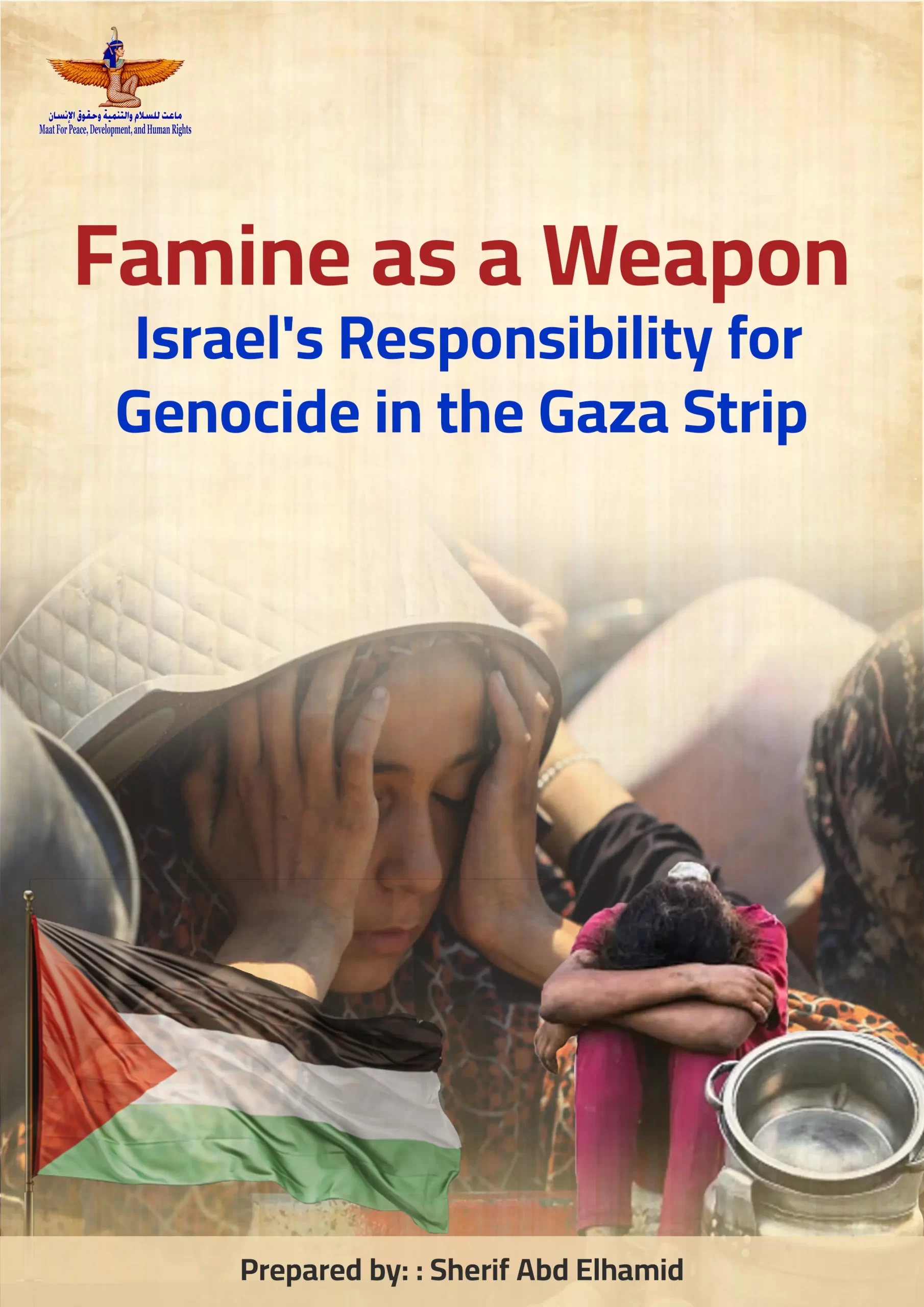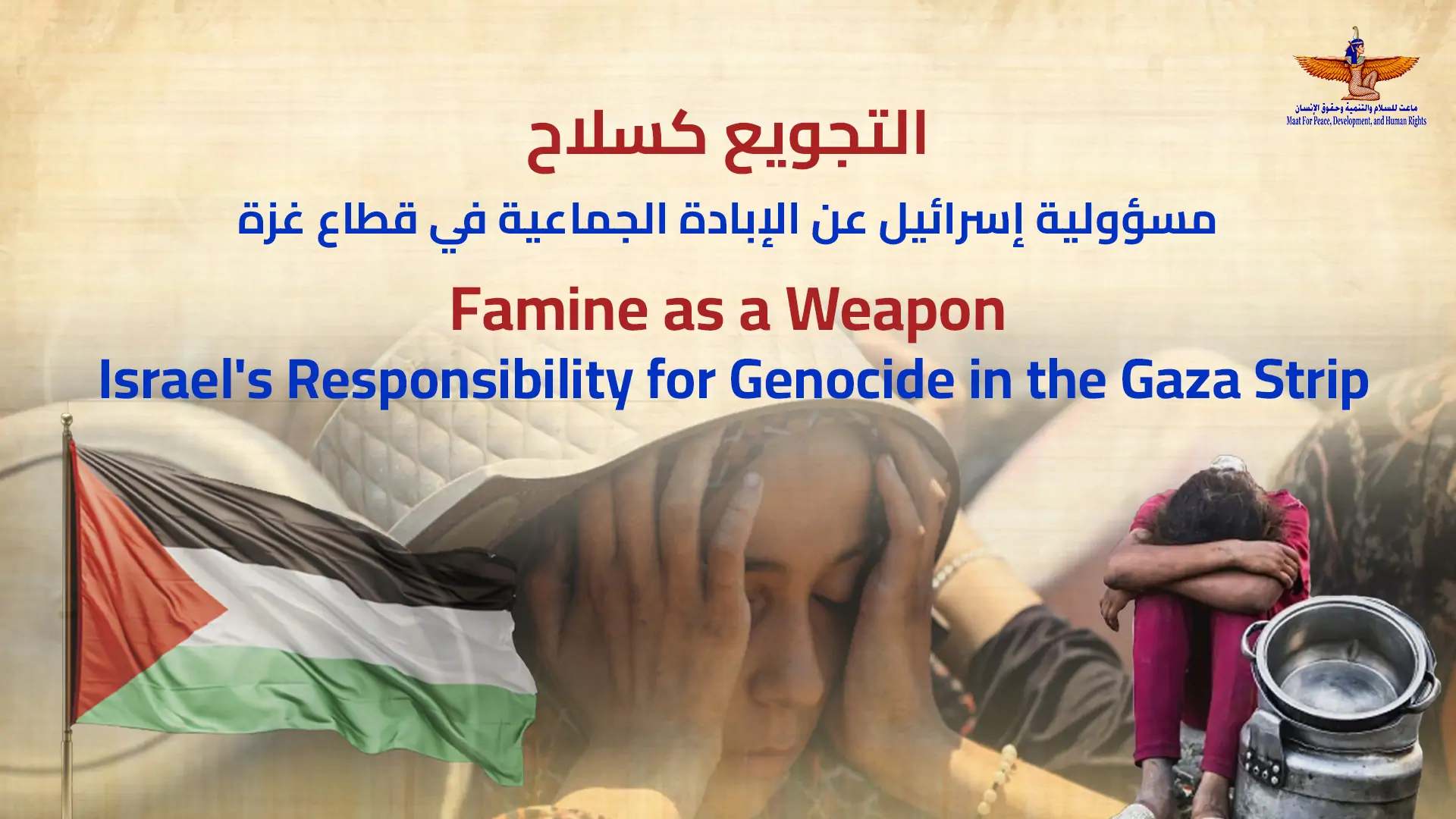"Famine as a Weapon" – A New Report by Maat Documents the Catastrophic Humanitarian Situation in Gaza
Okeil: What Gaza is experiencing today is not merely a humanitarian crisis but a continuing crime against humanity
Abdul Hamid: Israeli blockade reflects a deliberate intention to starve civilians as a method of warfare
Maat for Peace, Development, and Human Rights has issued a special report titled "Famine as a Weapon: Israel's Responsibility for Genocide in the Gaza Strip," which documents the serious human rights violations and breaches of international humanitarian law committed by Israeli occupation forces against Palestinian civilians through direct testimonies from victims of aggression in various areas of the Gaza Strip.
The report focuses on the human rights and humanitarian dimensions of the ongoing blockade and Israeli attacks, particularly concerning the deprivation of food, water, healthcare, and forced displacement, while highlighting the suffering of the most vulnerable groups, such as women, children, and the elderly. It also includes a special section titled "Voices from Under Siege," which features painful testimonies from Gaza residents, aiming to break the silence and draw the international community's attention to the tragic reality endured by over two million Palestinians.
In this context, Ayman Okeil, the human rights expert and Chairman of Maat, stated: "What Gaza is experiencing today is not just a humanitarian crisis but a continued crime against humanity. The comprehensive blockade, deliberate starvation, and indiscriminate attacks on civilian areas represent a blatant violation of the Geneva Conventions, necessitating immediate international action to provide protection for Palestinian civilians and hold the perpetrators accountable."
Okeil emphasized that "what is happening in the Gaza Strip constitutes a flagrant violation of the principles of international humanitarian law, especially the principles of proportionality and distinction in the use of force, and the principle of protecting civilian populations. The international community must recognize that its silence regarding this prolonged blockade and manufactured famines fosters a culture of impunity and reproduces cycles of violence in the region."
Dr. Sherif Abdul Hamid, Deputy Head of Maat, confirmed that the report is part of the organization's documentation efforts to monitor and record war crimes and serious violations. He added: "Through this report, we aim to enhance international accountability, push for serious investigations before UN mechanisms and relevant international courts, and work to provide urgent relief for conflict victims."
Abdul Hamid further noted that "the systematic targeting of farms, medical facilities, and supply routes by Israel amounts to war crimes under the Rome Statute, reflecting a deliberate intention to starve civilians as a method of warfare, which is strictly prohibited by the Geneva Conventions. The time has come to activate international mechanisms, including the International Criminal Court, to ensure accountability for those committing these grave violations."
The report concludes with clear human rights recommendations directed at the Human Rights Council, UN mechanisms, the states parties to the Geneva Conventions, and the international community at large, calling for an immediate ceasefire, the lifting of the blockade, the guarantee of unrestricted humanitarian aid access, and the activation of international accountability tools.
This step is part of a human rights campaign undertaken by Maat, in line with its commitment to advocate for victims and promote justice and human dignity in conflict areas.

 |
 |
shortlink: https://maatpeace.org/en/?p=45120












